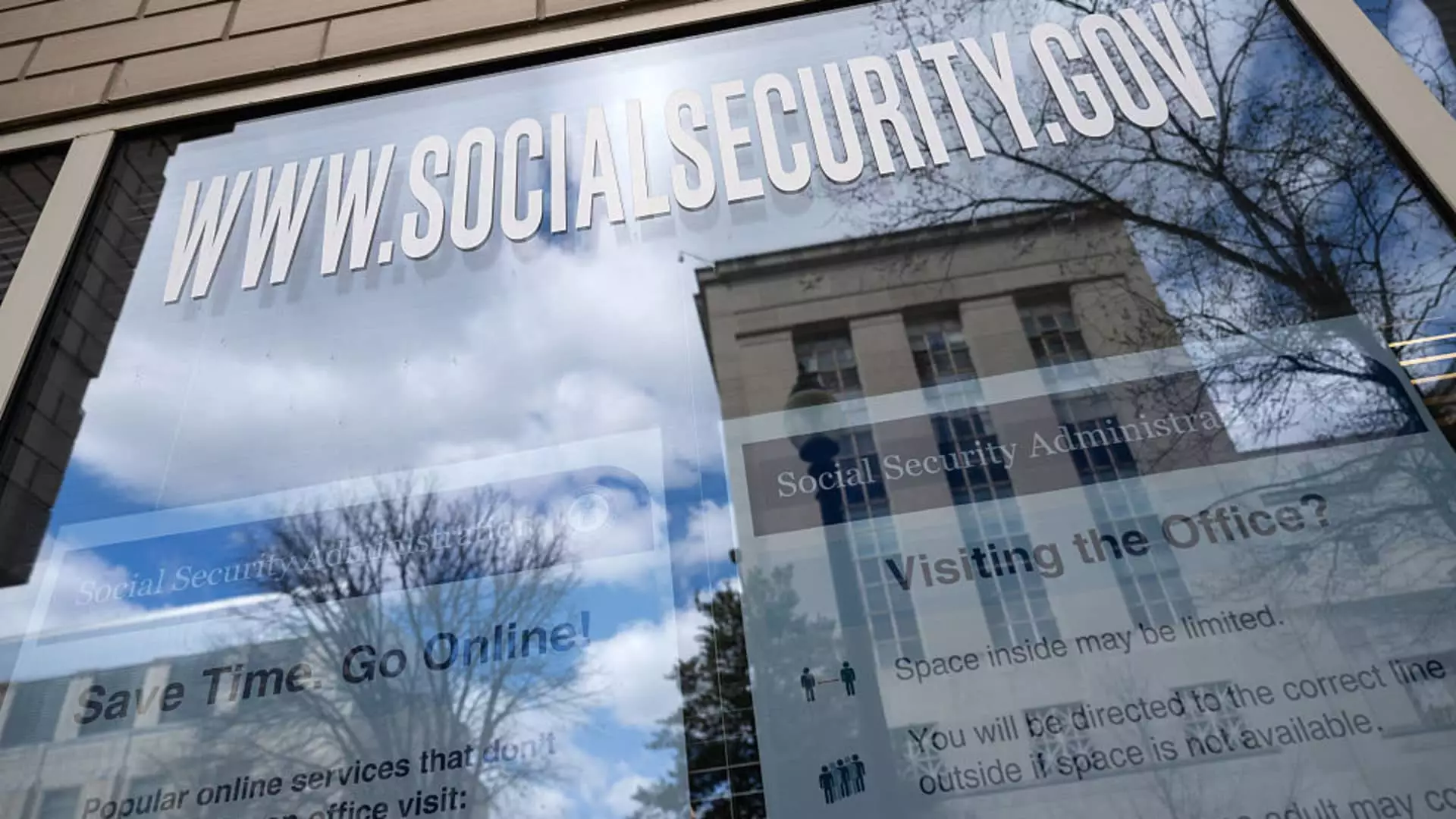The recent report from the Social Security Board of Trustees paints a troubling picture for millions of Americans relying on this critical program. The trust fund that supports Social Security is on a precipice, with projections indicating a depletion by 2033—a situation that has remained unchanged from prior estimates. This revelation serves as a wake-up call: the sustainability of Social Security, a bedrock of retirement security, is seriously jeopardized. With 77% of benefits expected to be payable at that time, the unsettling reality is that a significant portion of retirees may face reduced support when they need it most.
The combined trust funds comprise the Old-Age and Survivors Insurance Trust Fund along with the Disability Insurance Trust Fund, and both forms of assistance are expected to last through at least 2034. However, this extends no solace given that the recent report highlights a narrowing window for intervention. With Congress dictating the terms of fund separations, the real possibility of legislative change looms large, casting shadows over millions who have paid into this system throughout their working lives.
The Impact of External Factors
Compounding the alarmingly precarious status of Social Security is the reality of legislative headwinds that could worsen the situation. Critical discussions surrounding new tax proposals, tariffs, and immigration policies were glaring omissions from this year’s report. Such external factors have the potential to destabilize financing mechanisms, putting further strain on an already-tenuous infrastructure. Despite efforts from legislators like Kathleen Romig to raise awareness of these threats, the silence from decision-makers can be deafening, leaving a sense of urgency unaddressed.
In a world where fiscal navigation becomes increasingly complex, advocating for systematic reform in Social Security is undeniably a bipartisan necessity. The idea that lawmakers have time to waste remains a myth; the clock is ticking, and the impending depletion dates for both Social Security and Medicare draw closer. The urgency to implement gradual changes cannot be overstated if we are to escape the specter of dramatic cuts or unsustainable tax increases.
A Precarious Balance: Beneficiaries vs. Taxpayers
With around 70 million Americans set to receive Social Security benefits this year, and 185 million workers contributing to the system, the landscape is fraught with tension between beneficiaries and taxpayers. It is deeply concerning that while retirees stand to suffer, the core issue dwells in the political stalemate, where neither party presents a viable plan that tackles both short-term funding and long-term solvency.
It is not merely theoretical—people’s lives hinge on these decisions. The heart of the matter lies in a recent survey conducted by the National Academy of Social Insurance, which revealed that an overwhelming 85% of Americans prefer tax increments to benefit cuts. This overwhelming consensus sends a clear message that citizens recognize the core value of Social Security and are willing to pay a fair share to protect it.
Rethinking Policies: A Call for Progressive Action
Amid the often stifled discussions in Washington, the discourse on eliminating the payroll tax cap at the $400,000 income level still resonates with constituents. This idea, along with a modest increase in payroll tax rates, would radically transform the funding landscape for Social Security, enhancing the program’s viability without crippling middle-class families. Advocates like Rebecca Vallas shine a light on the potential benefits of this strategy, emphasizing the need for lawmakers to respond to the people’s desires.
The American public, across party lines, is adamant about maintaining the integrity of Social Security. For too long, these discussions have been relegated to GOP vs. Dem, when in reality, a unified approach to enhance revenue streams might well be the saving grace for countless families. What is required at this critical juncture is a shift in focus from partisan agendas to the genuine welfare of the citizens who built this program with their contributions.
Proactive Solutions: A Path Forward
To insulate Social Security and Medicare from impending bankruptcy, real, progressive action is fundamental. It is not enough for lawmakers to simply acknowledge the challenges; they must proactively engage in public dialogue and forge consensus on reforms that are both equitable and sustainable. Waiting for the crisis to become undeniable will lead to punitive measures that are neither just nor effective, thrusting vulnerable populations into further despair.
The future of Social Security is not predetermined. It rests on the shoulders of the individuals elected to make careful, deliberate decisions for the citizenry. As we herald into a new era, let it be one characterized by transparency, justice, and courageous policymaking. The stakes are too high for anything less.


Leave a Reply